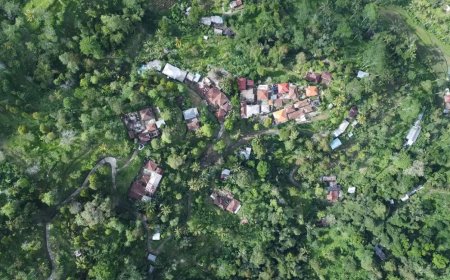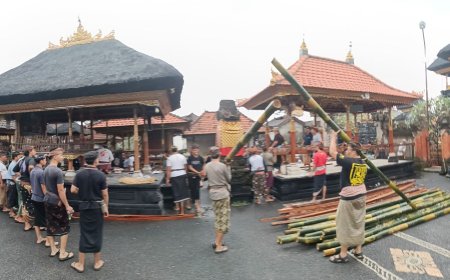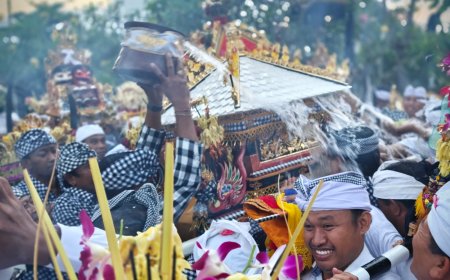Mapepada: Ritual of Respect and Elevation of Animal Spirits in Yadnya Tradition to Avoid Himsa Karma
The Mapepada ritual is a manifestation of the belief that animal sacrifice in yadnya is not merely a physical act but an effort to honor and elevate the spirit or soul of the animal. In this context, Mapepada functions as an act of respect and devotion, ensuring that the sacrifice is carried out with full awareness and good intention. Thus, this ritual helps prevent practitioners from accruing himsa karma, or negative karma, that might arise from actions misaligned with spiritual principles. Through Mapepada, animal sacrifice in yadnya becomes a means to achieve balance and harmony in the relationship between humans, nature, and the divine.
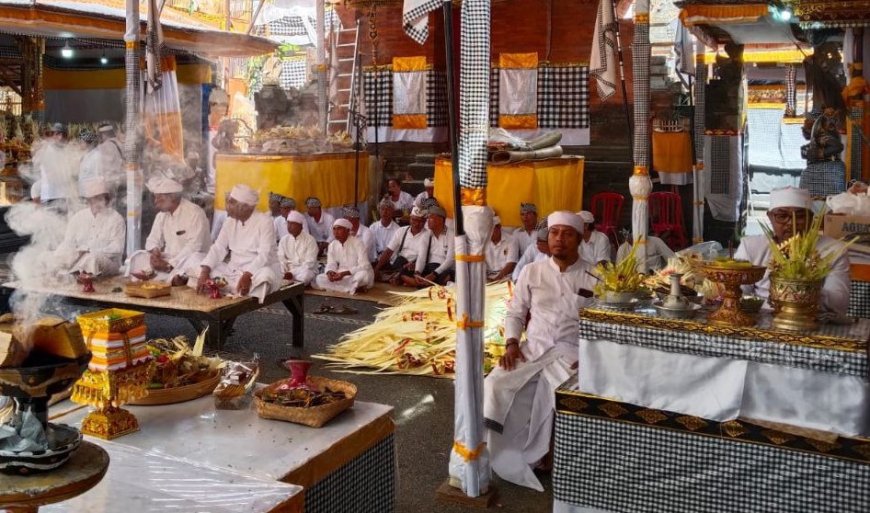
On Anggara Pon Wuku Warigadean, September 3, 2024, Pura Desa Puseh in Desa Adat Mengwitani will hold the Mapepada Caru Alit ritual as part of the preparations for the Karya Agung Ngenteg Linggih, Ngusabha Desa, and Mapahayu Nini. This Mapepada Caru Alit ritual is one of two mapepada ceremonies within this grand ritual series. The second ceremony, Mapepada Tawur (Caru Besar), will take place on October 2, 2024. Caru Alit and Tawur (Caru Besar) represent two forms of ceremonies within the bhuta yadnya mecaru series, differing in scale and intensity. Despite their different sizes and intensities, the essence of the mapepada ceremony remains consistent for both.
Mapepada is a sacred ritual in Balinese Hindu tradition that embodies the profound meaning of purifying animals as part of the Bhuta Yadnya. Etymologically, "Mapepada" comes from the Balinese language, where "pada" can be translated as "same" or "foot." In this context, "pada" reflects the principle of equating or balancing the spirit of the animal, integrating it harmoniously into the religious ceremony.
Mapepada involves the purification and sanctification of the spirit of the animals used in Bhuta Yadnya ceremonies. Its primary goal is to elevate the animal’s spirit so that after death, it does not reincarnate into another animal form. This reflects the belief that every living being has spiritual potential that can be enhanced through appropriate rituals.
The philosophy behind Mapepada manifests the principles of balance and harmony underlying Balinese Hindu teachings. The ritual not only serves to purify the animal to be sacrificed but also embodies respect for the cycles of life and death. In Balinese tradition, this ceremony is seen as a way to maintain a harmonious relationship between humans, living beings, and spiritual forces.
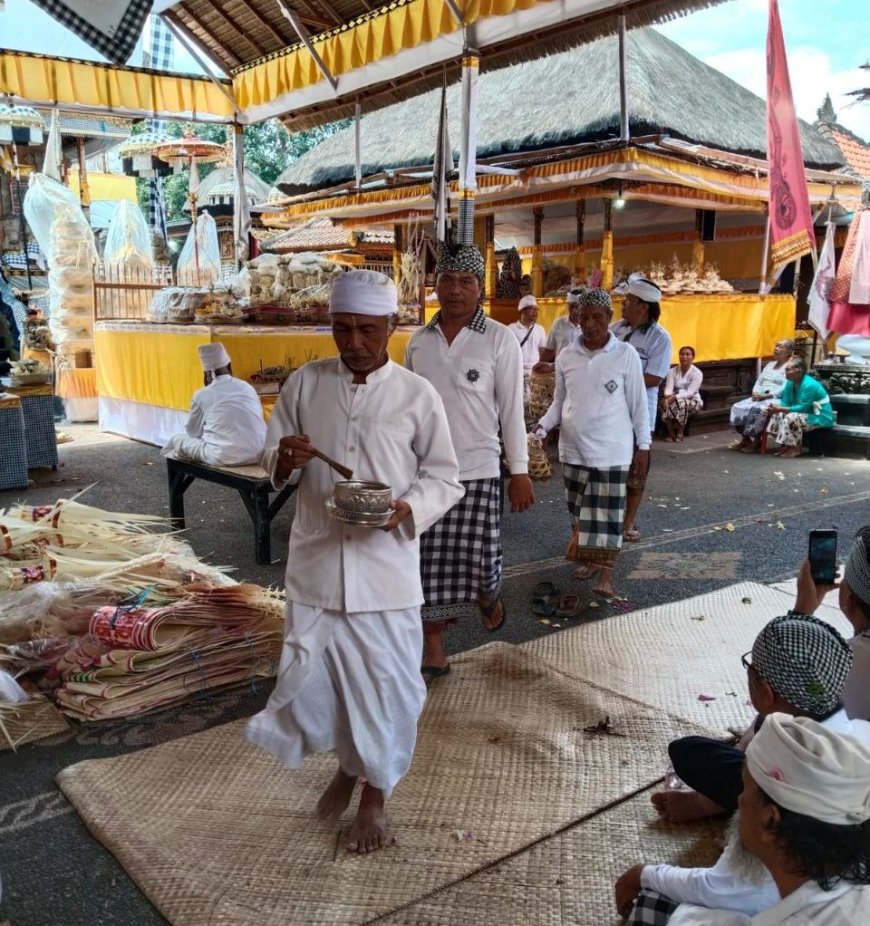
The process of guiding the animal to circle the ritual site three times
During Mapepada, the animals to be sacrificed include chickens, ducks, and asu (dogs) that are bang bungkem, known as Murwa Daksina, which means moving towards a higher level or a better spiritual direction. This ritual is symbolic of transcendence, offering the animal a chance to experience spiritual elevation before its role in the ceremony.
Mapepada Caru Alit is performed to prepare the animals for the sacred ceremonies of Nyengker Setra, Ngingsah, and Caru ring Catus Pada and Penangun Desa. This ritual is a crucial preparatory step, ensuring that the animals are spiritually and ceremonially ready for these significant rites. By conducting Mapepada Caru Alit, the community ensures that the animals are properly honored and purified, aligning with the spiritual significance of the upcoming ceremonies and contributing to the overall harmony and sanctity of the ritual process.
The Mapepada ritual is a manifestation of the belief that animal sacrifice in yadnya is not merely a physical act but an effort to honor and elevate the spirit or soul of the animal. In this context, Mapepada functions as an act of respect and devotion, ensuring that the sacrifice is carried out with full awareness and good intention. Thus, this ritual helps prevent practitioners from accruing himsa karma, or negative karma, that might arise from actions misaligned with spiritual principles. Through Mapepada, animal sacrifice in yadnya becomes a means to achieve balance and harmony in the relationship between humans, nature, and the divine.





